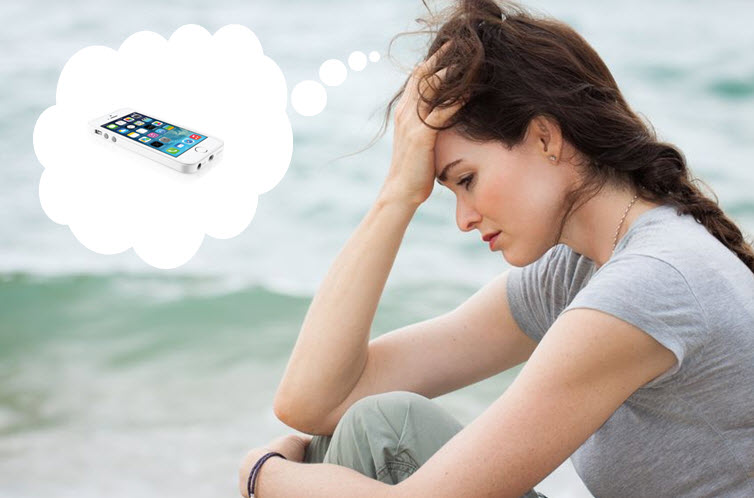BEING constantly “plugged in” can be great. You’re always on top of the latest meme or trending hashtag, and connecting with another human is only ever a tap away. But that doesn’t mean that the intimate relationships we have with our phones don’t come with certain drawbacks; it’s been proven that checking your phone in the night can heavily disrupt your sleep schedule, that social media addiction can become a crippling, all-consuming habit, and that your iPhone can basically ruin your life. But now there’s another reason to be wary of your smartphone: it can cause you anxiety.
A recent study published in the Journal of Computer-Mediated Communication found that our anxiety and stress levels spike when we can see our phones ringing or lighting up with notifications, but are unable to answer or respond to them immediately. The horror! This is what nightmares are made of.
Researchers decided to test this correlation by asking participants to solve puzzles while their vital signs were being tracked for things like heart rate and blood pressure. The participants’ phones were placed a little ways away, and they were instructed not to pick them up. When those sadistic researchers set the participants’ phones a-ringin’, each and every participant reacted with spikes in anxiety levels and stress-related vitals.
The participants not only got stressed out about missing a potential call, but they also performed more poorly on the puzzles that they were solving at the time.
According to David Greenfield, Ph.D., the founder of the Center for Internet and Technology Addiction:
“Smartphones put us in an ever-increasing state of hyper-vigilance, where we’re always feeling compelled to check our calls, texts, social media alerts, email, and more. This keeps the adrenals constantly activated and cortisol levels elevated.”
For those of us who’ve forgotten our tenth-grade biology lessons, cortisol is the hormone that the body releases in response to stress. Stress and cortisol can wreak havoc on the immune system, the skin, hunger levels, sleep schedules, and a host of other important biological functions and processes. Awesome!
To remedy this issue, the researchers do not suggest, however, that we start keeping our phone next to us and answering every call. Instead, they prescribe actually turning our phones off when we don’t need them (begging the question: when do we ever not need our phones?), and setting certain time frames for when we’re allowed to check social media, or respond to e-mail, or even chat with our friends and acquaintances.
This isn’t such a bad idea, once you get over the separation anxiety that even thinking about not having your phone on you 24/7 causes. Some research has shown that, following an answered phone call that disrupted an activity, it can take up to thirty minutes to regain focus on the original task. Yikes. Okay. So maybe there are a couple work hours that could become more productive with a little unplugging. Text me and let me know how that turns out.

















